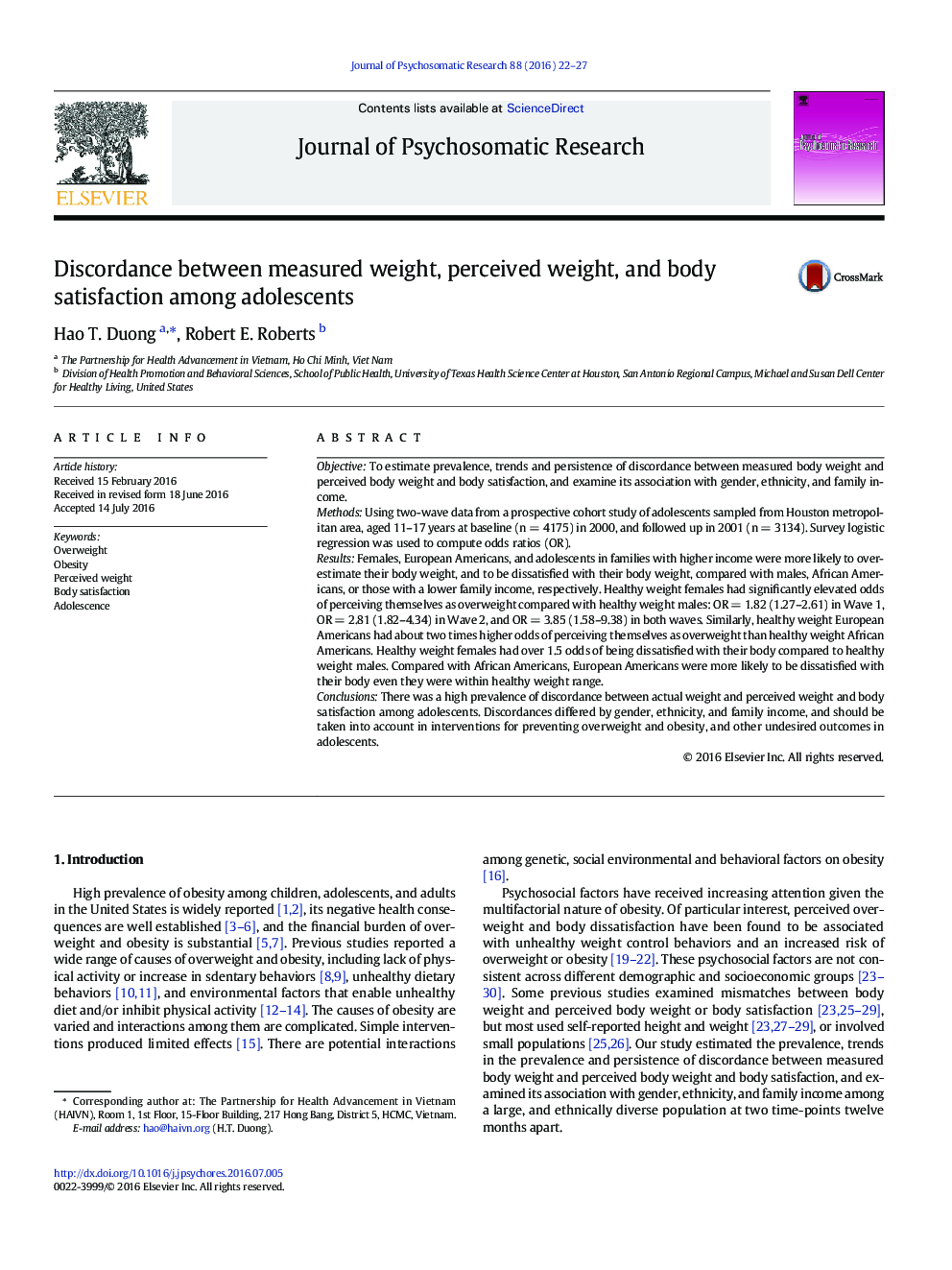| کد مقاله | کد نشریه | سال انتشار | مقاله انگلیسی | نسخه تمام متن |
|---|---|---|---|---|
| 949107 | 1475907 | 2016 | 6 صفحه PDF | دانلود رایگان |
• Limited research focuses on body weight, perceived weight, and body satisfaction among adolescents.
• Our results show dramatic discordance between these measures by gender, ethnic group, and family income.
• Females, European Americans, and higher income youths overestimated their body weight compared to their corresponding counterparts.
• Females, European Americans, and higher income youths were more dissatisfied with their bodies compared to their corresponding counterparts.
ObjectiveTo estimate prevalence, trends and persistence of discordance between measured body weight and perceived body weight and body satisfaction, and examine its association with gender, ethnicity, and family income.MethodsUsing two-wave data from a prospective cohort study of adolescents sampled from Houston metropolitan area, aged 11–17 years at baseline (n = 4175) in 2000, and followed up in 2001 (n = 3134). Survey logistic regression was used to compute odds ratios (OR).ResultsFemales, European Americans, and adolescents in families with higher income were more likely to overestimate their body weight, and to be dissatisfied with their body weight, compared with males, African Americans, or those with a lower family income, respectively. Healthy weight females had significantly elevated odds of perceiving themselves as overweight compared with healthy weight males: OR = 1.82 (1.27–2.61) in Wave 1, OR = 2.81 (1.82–4.34) in Wave 2, and OR = 3.85 (1.58–9.38) in both waves. Similarly, healthy weight European Americans had about two times higher odds of perceiving themselves as overweight than healthy weight African Americans. Healthy weight females had over 1.5 odds of being dissatisfied with their body compared to healthy weight males. Compared with African Americans, European Americans were more likely to be dissatisfied with their body even they were within healthy weight range.ConclusionsThere was a high prevalence of discordance between actual weight and perceived weight and body satisfaction among adolescents. Discordances differed by gender, ethnicity, and family income, and should be taken into account in interventions for preventing overweight and obesity, and other undesired outcomes in adolescents.
Journal: Journal of Psychosomatic Research - Volume 88, September 2016, Pages 22–27
